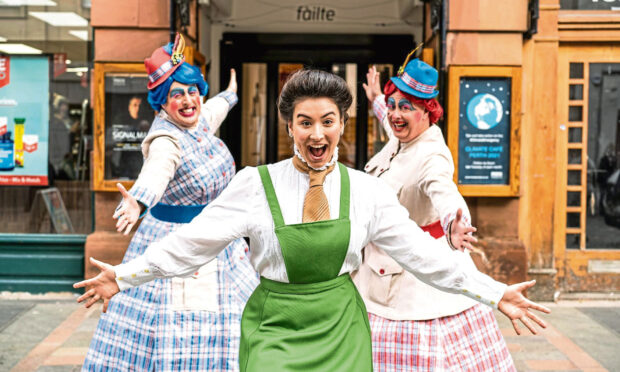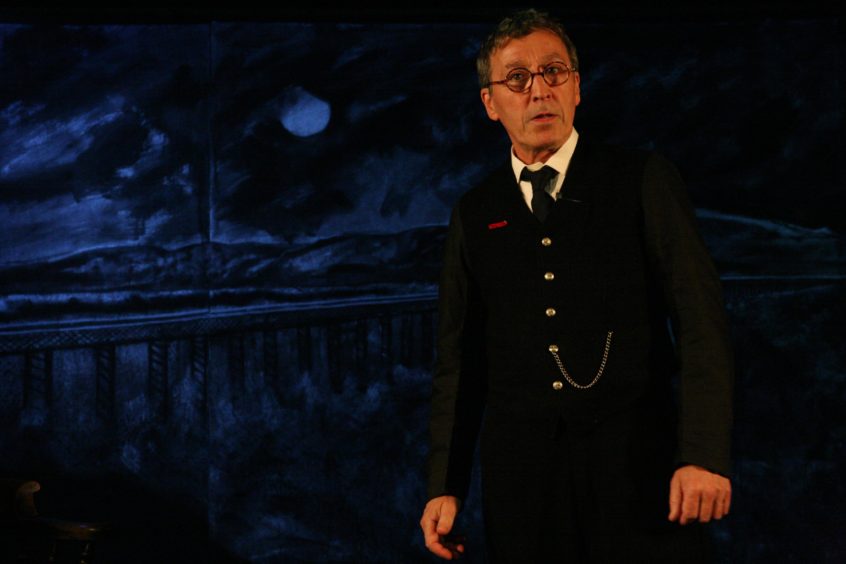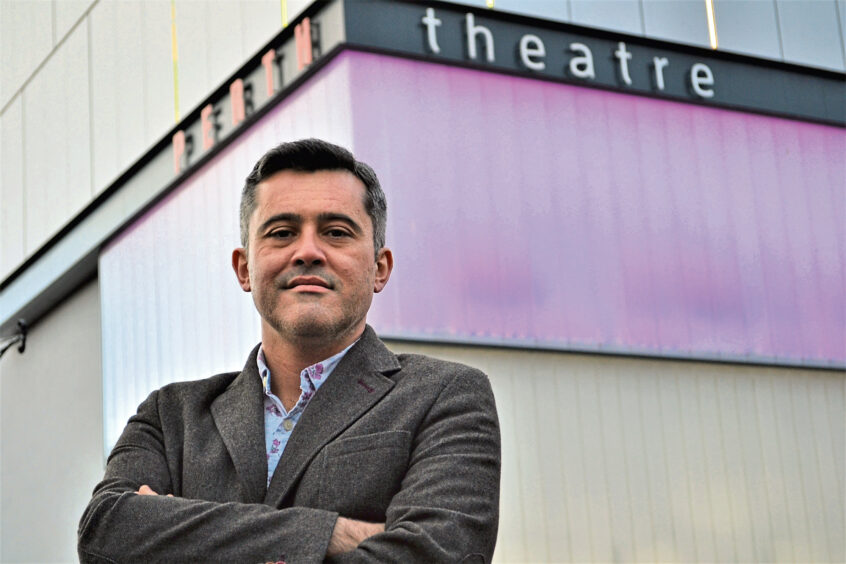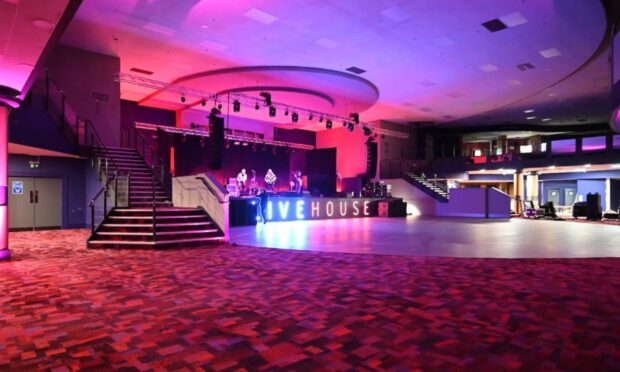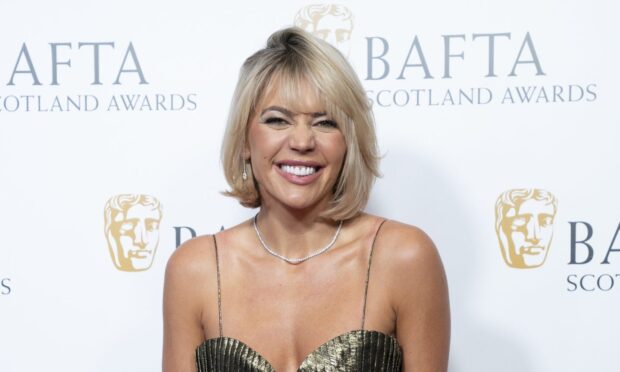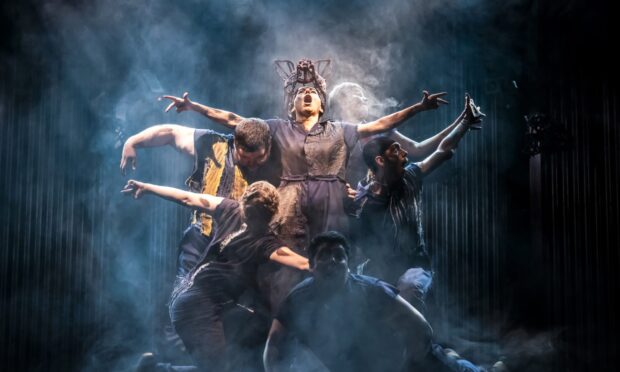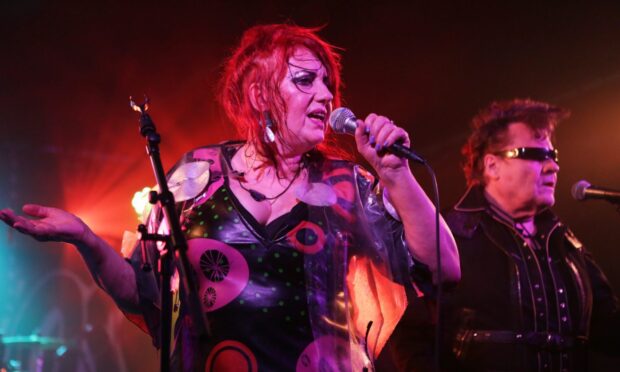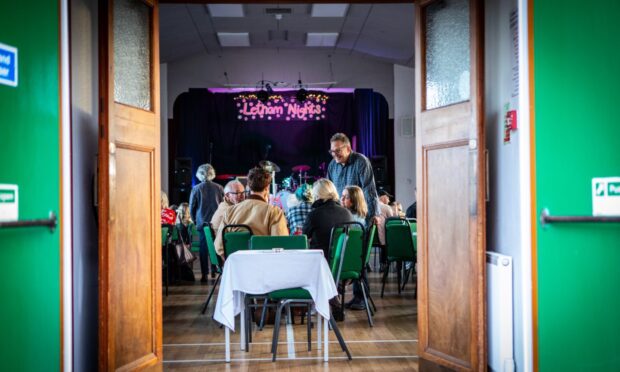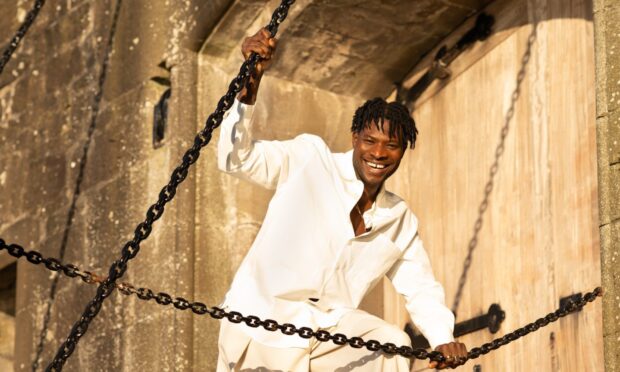Just before the pandemic hit, Horsecross Arts – the organisation running Perth Theatre and Concert Hall – was on its knees after board members resigned and an audit raised the alarm over poor financial management.
When the lockdowns were imposed, followed by restrictions meaning the venue couldn’t generate its usual revenue through ticket sales, there were very real fears that it may not survive at all.
Fast forward to now and the picture is looking much rosier. The organisation has a new chief executive and board of directors. During the pandemic it received funding from the Scottish Government and in September opened its doors with a full programme for the first time post-lockdown.
New programme
A range of theatre shows, concerts and community events are on offer, ranging from a remake of the classic Don Juan, to Christmas pantomime Cinderella, to community projects involving St Johnstone FC.
“There really is something for everyone, we’ve got so much on in Perth Concert Hall and Perth Theatre over the coming months,” said Nick Williams, Horsecross’s recently-appointed chief executive.
“We opened mid-September with the award-winning play The Signalman and Scottish Opera’s staging of Mozart’s Cosi fan Tutte.
“Reopening when the pandemic isn’t completely over is very fraught with risk and uncertainty, but we are used to dealing with risk in so many ways. We are trying to mitigate the risks as much as we can.”
New chief executive
Swansea-born Nick, for whom theatre was an important part of life as he was growing up, started his career at the Edinburgh Fringe, where he was a stage manager.
He went on to work at a number of venues across the UK throughout his 20-year career as a producer and arts manager, including The Coronet Theatre, Actors Touring Company, Paines Plough, Nutkhut, Hampstead Theatre and the Royal Shakespeare Company, as well as producing under his own name.
After a number of leadership roles at the theatre arm of Arts Council England, he was brought on board at Horsecross in 2020 in a bid to overhaul the organisation.
Pandemic
“The challenges Horsecross was facing before the pandemic were well-publicised,” explains Nick.
“I arrived in December 2019 with a view to help build a sustainable future.
“But just as I was getting started, news was coming in about Covid making its way into the UK. Our priority had to be to think about how to keep audiences safe.
“We really had no clue that the pandemic would become so tough. It just snowballed. Before we knew it, we were in lockdown and we had to close.
Zoom theatre
“Even then, everyone thought it would all be done with by summer and we’d be able to reopen by September at the latest. That date kept being pushed back again and again. There were times of optimism when cases were lowering, but then they would rise again, and we went into the levels system.
“It was a very difficult period for us and we tried to weather the storm as best as possible. Our Zoom panto was very successful, for example.
“But the problems that were there already and were amplified by the pandemic couldn’t be ignored. I had to consider the possibility that actually, the organisation may not survive at all.”
Government funding
Horsecross received funding from the Scottish Government to help the organisation stay afloat while venues were closed, and in addition, its loyal audiences helped with donations.
Even though shows were cancelled, many did not ask for refunds and simply asked for the tickets to be transferred to a later date.
“Our audiences were hugely supportive and helped us so that when lockdown was lifted, we actually could still be here.
“It really highlighted how important this service is to people and we want to thank them for supporting us. It was something that kept us going and gave us the drive we needed to make sure we survived.”
Re-opening
In May, Perth Theatre and Concert Hall were able to reopen in a limited capacity, welcoming around 200 to 300 people at a time to classical performances, such as a concert by the Royal Scottish National Orchestra in June.
At the end of July and beginning of August they held Festival on the Plaza, an outdoor event which was a further step forward to see if people were ready to come back to the world of live entertainment.
“It gave us the chance to test our Covid measures and work out how to keep people safe,” said Nick.
Restrictions
“We were still under restrictions at the time but what we’ve found is that our audiences are desperate to come back. There were people who came to every performance.
“Then when the restrictions were lifted, that fired the starting gun and we thought ‘OK, we can do this’. Fast-forward eight weeks, and this is us reopening fully, hopefully for good.
“While the events with restricted numbers were a success, it was never going to be viable long-term to operate that way. Now we are back to full throttle.
Post-lockdown changes
“There are a number of things that will be different. For instance, in the bar area we are opening more service points so that people get served quicker and don’t have to queue.
“They can also take their drinks on the balcony, which wasn’t allowed previously. We’re also doing some socially distanced performances in the classical music programme to make people feel more comfortable.
“We can’t afford to do that for every event, but we hope that people who are more reticent about safety can still find something they can come along to and enjoy.”
In addition, there is a system of enhanced air flow throughout all buildings, audiences are asked to wear a mask and all staff are also masked.
Screen fatigue
And what of the online events which seemed so popular during lockdown?
“I think that people are experiencing screen fatigue, because screens were all they had over the past year,” explains Nick.
“Our audiences have told us that they really want to be in a room with performances and to experience the atmosphere of a proper live event.
“Although our online panto was successful, we’re now going to be focusing on live performances only and won’t be live-streaming shows. Of course, if the rules change again we will reconsider.”
Vaccine passport
One potential hurdle for Horsecross is the newly-introduced “vaccine passport” scheme, which requires people to show evidence that they have had two Covid-19 vaccines if attending events such as indoor unseated live events of more than 500 people.
This would impact large concerts with standing tickets, which form a small part of the Horsecross programme.
“I think people will find that challenging but we have to comply with the law,” adds Nick.
Safety
“We’re trying to ensure safety while not making it too difficult for people and also making sure they’re able to have a great night out. A good night out is the thing a lot of people desperately need after being locked down for so long. So far people have been really understanding about the Covid measures.
“They understand that the measures have to be in place for us to be able to open, so they’re willing to wear a mask and comply with the rules.”
The future of Horsecross
And what about the long-term future of Horsecross? Are the financial problems over and what changes can audiences expect to see to its cultural offering?
“We are now in a much better position financially than pre-pandemic,” says Nick.
“We have been able to access funding and we have a new board who are terrific and hugely supportive. I’m actually very optimistic about the future.
A gradual change
“In terms of what will change in the future, I don’t think people will immediately notice a big shift.
“We’ve always had big names coming to perform here in Perth and this is something we’ll continue to pursue, so that people don’t have to go further afield to Edinburgh and Glasgow.
“But we are evolving the way we do things. We’re developing new partnerships, such as with St Johnstone FC.
“There will be a series of community projects culminating in a performance called Sainties on Stage. We will be very much focusing our drama programme on entertainment.”
For information on upcoming performances at Perth Theatre and Concert Hall, visit https://www.horsecross.co.uk/whats-on
